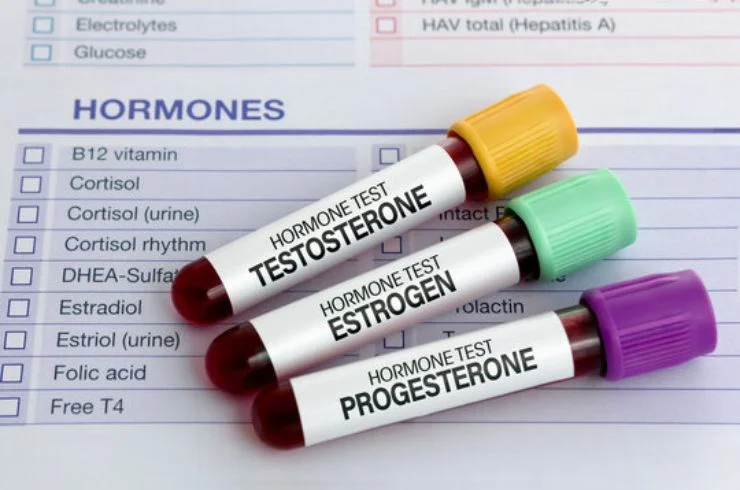
Hormonal tests play a crucial role in diagnosing and managing various health conditions related to the endocrine system, which controls the hormones in the body. Hormones regulate many important functions, such as metabolism, growth, reproduction, and mood. Imbalances in hormone levels can lead to a wide range of symptoms and health issues. This guide will explore the importance of hormonal tests services and how they benefit residents of Wakad, Maharashtra.
Hormonal tests services involve measuring the levels of various hormones in the blood, urine, or saliva. These tests help diagnose conditions related to the thyroid, reproductive organs, adrenal glands, and more. By identifying hormone imbalances, doctors can pinpoint underlying health issues and create effective treatment plans. Common hormonal tests include thyroid function tests, reproductive hormone tests, adrenal hormone tests, and others.
In Wakad, Maharashtra, hormonal tests are crucial for identifying and managing a wide range of conditions that can affect both men and women. Hormonal imbalances can lead to various issues, including infertility, weight gain or loss, fatigue, mood swings, and more. Access to reliable hormonal test services is essential for early diagnosis, proper treatment, and overall well-being.
There are several different types of hormonal tests, each designed to assess specific areas of the endocrine system. Below are some of the most common hormonal tests:
Thyroid function tests are used to measure hormones such as Thyroid Stimulating Hormone (TSH), Free T4, and Free T3. These tests help diagnose thyroid disorders like hypothyroidism (underactive thyroid) and hyperthyroidism (overactive thyroid). Symptoms like fatigue, weight changes, and hair loss are commonly linked to thyroid problems.
These tests measure the levels of estrogen and progesterone, which are vital hormones for the female reproductive system. They are often used to evaluate menstrual irregularities, fertility issues, and menopause symptoms. These tests are also used to monitor hormone replacement therapy (HRT) during menopause.
Testosterone is the primary male sex hormone, but it is also important in women. Low testosterone in men can lead to symptoms like low libido, fatigue, and depression, while women may experience similar issues. Elevated testosterone levels in women may indicate conditions like polycystic ovary syndrome (PCOS).
Prolactin is a hormone produced by the pituitary gland that regulates milk production in women. Elevated prolactin levels can cause infertility, irregular menstrual cycles, or difficulty breastfeeding. High prolactin levels in men can also result in low testosterone and infertility.
Cortisol is a hormone produced by the adrenal glands in response to stress. It plays a role in various bodily functions, including regulating blood pressure and immune response. Abnormal cortisol levels can indicate conditions like Cushing’s syndrome (high cortisol) or Addison’s disease (low cortisol), both of which can have severe health implications.
LH and FSH are hormones involved in regulating the menstrual cycle and ovulation in women. These tests are essential for diagnosing conditions like PCOS, ovarian dysfunction, and infertility. In men, LH and FSH levels can also affect sperm production and overall reproductive health.
Insulin is a hormone produced by the pancreas that regulates blood sugar levels. Abnormal insulin levels can be indicative of conditions like diabetes, insulin resistance, and metabolic syndrome. Glucose tests, often done in combination with insulin tests, help evaluate how the body processes sugar and can aid in diagnosing diabetes.
C-Peptide is a substance produced in the pancreas when insulin is created. Testing for C-Peptide levels helps determine how much insulin the body is producing, which is important for diagnosing conditions like type 1 and type 2 diabetes, insulin resistance, and beta-cell function. C-Peptide levels can help distinguish between different causes of low blood sugar and determine the type of diabetes a person has.
hCG is a hormone produced during pregnancy. A blood test for hCG can confirm pregnancy and monitor its progress. It is also used to detect certain cancers or assess ovarian health.
While not a hormone test per se, vitamin D plays an essential role in the regulation of calcium metabolism and bone health. Low vitamin D levels can affect hormonal balance and increase the risk of osteoporosis, cardiovascular disease, and immune system dysfunction.
Vitamin B12 plays a key role in the production of red blood cells and the proper functioning of the nervous system. Low levels of Vitamin B12 can lead to fatigue, weakness, and nerve problems. Testing for B12 levels is important for diagnosing deficiencies that can lead to serious health issues.
AMH is a hormone produced by the ovaries that reflects ovarian reserve and fertility potential. It is commonly used to assess fertility, predict menopause, and evaluate conditions like polycystic ovary syndrome (PCOS).
The Double Marker Test is a screening test used during pregnancy to assess the risk of certain genetic conditions, such as Down syndrome. It measures the levels of two substances—pregnancy-associated plasma protein-A (PAPP-A) and free beta-hCG—and is typically done between the 11th and 14th weeks of pregnancy.
Hormonal tests are essential for diagnosing and managing a variety of conditions that affect the endocrine system:
Hormonal tests are not just for diagnosing specific conditions—they also play a role in preventive healthcare. Regular hormonal screenings can help detect imbalances early, even before symptoms appear. For example, thyroid tests can catch hypothyroidism before it leads to fatigue or weight gain, and estrogen tests can help identify early signs of menopause, allowing women to manage their health proactively.
When selecting a hormonal test service in Wakad, Maharashtra, consider the following factors:
Preparing for hormonal tests may vary depending on the specific test being conducted. Here are some general guidelines: